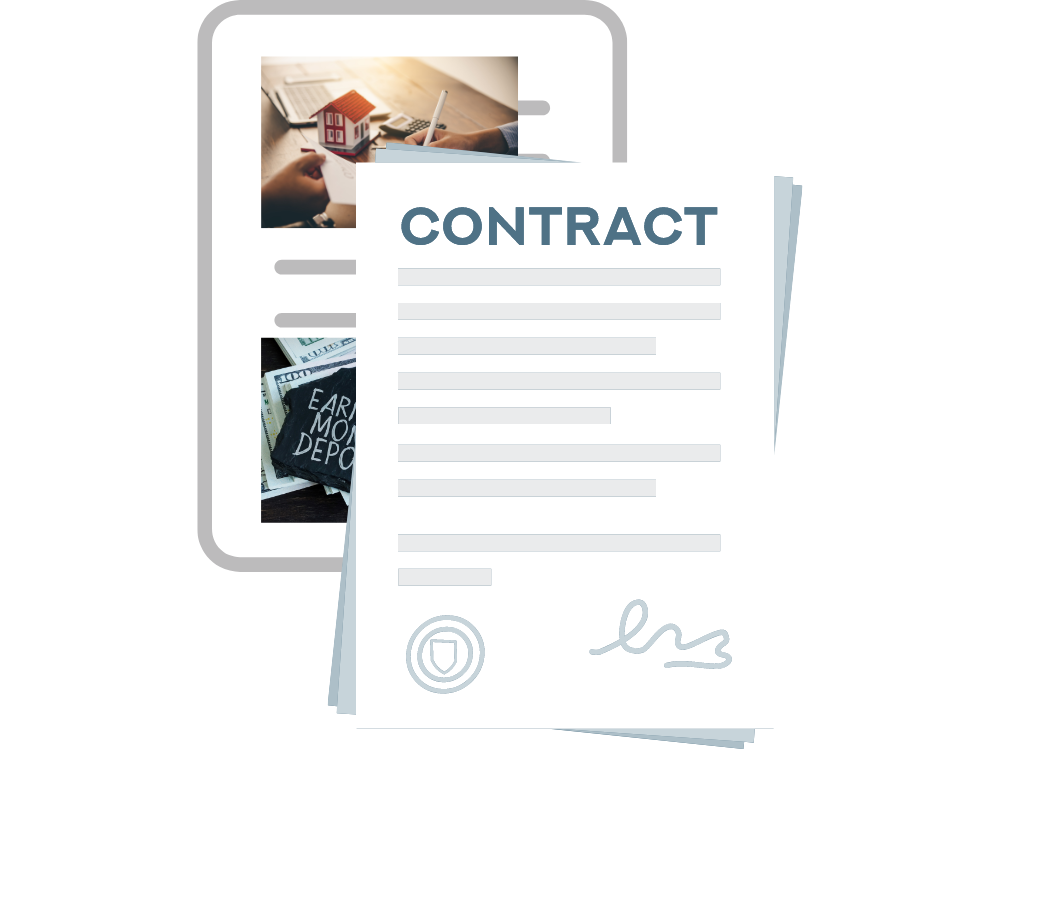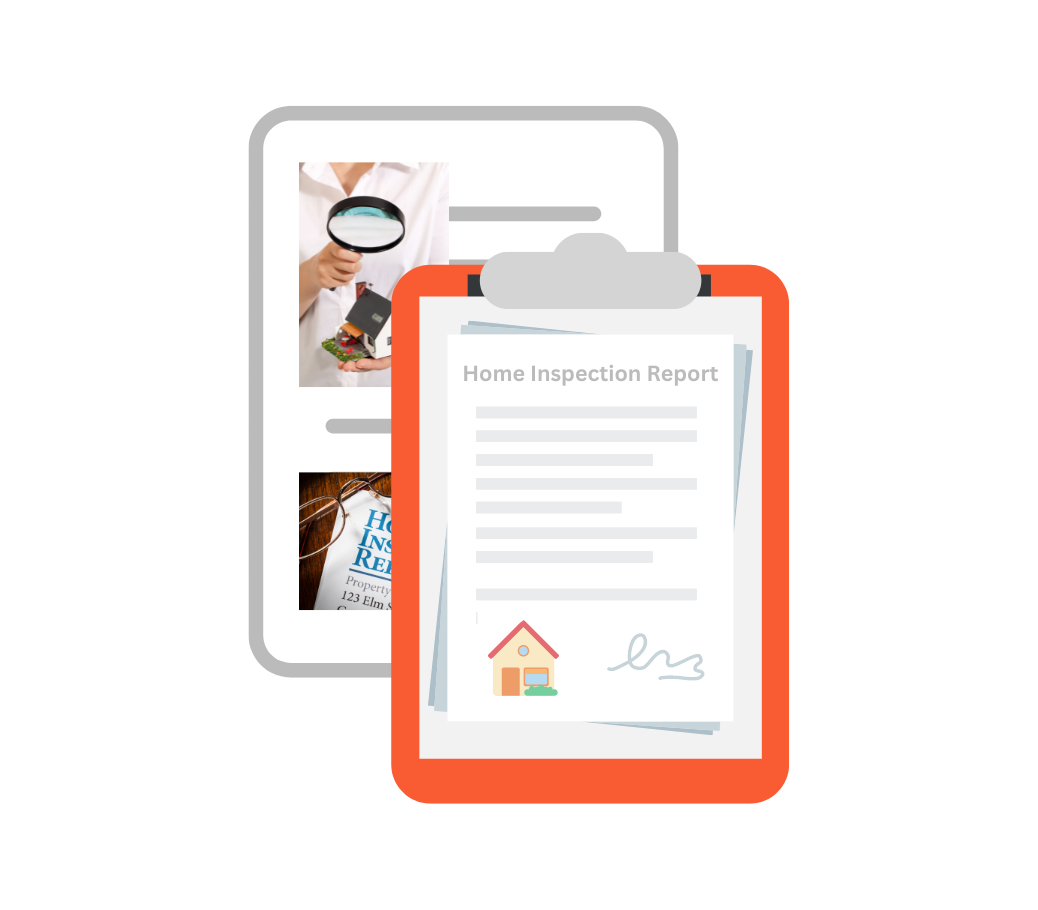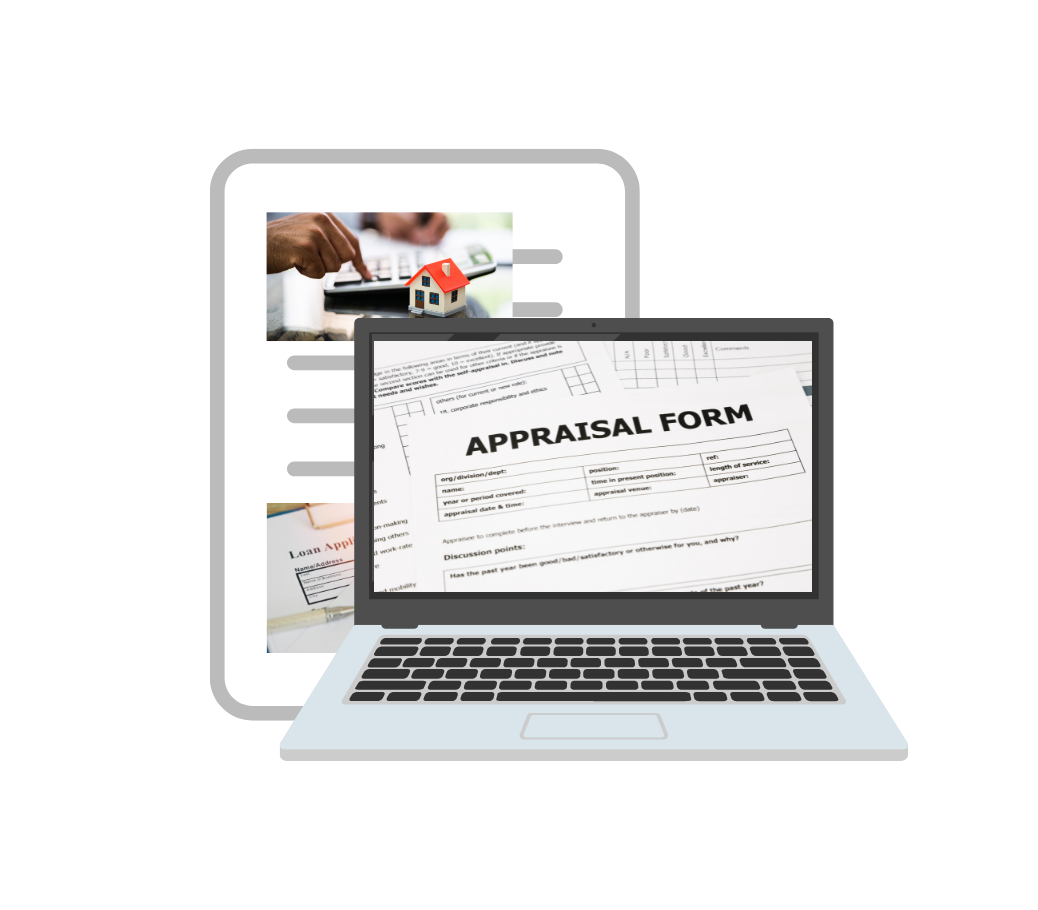LOOKING TO BUY SOON?
More Than Just a Home Search: Discover a Lifelong Real Estate Partner
Your Arizona Buyer's Guide
Your path to home ownership begins here!
At our first meeting and all the way through to closing, YOU (the buyer-client) will have your questions answered promptly and YOUR interests will come above all else, ALL of the time.
As your buyer's agent, we are here to serve your needs in finding you the perfect home that fits your lifestyle and meets your financial goals.
We're into building long-term relationships for life with our clients, as many come back to us time and time again to buy and sell real estate. Our success only comes as a result of you successfully completing a purchase (or sale), and once we've locked in the perfect home for you, we ensure that we will fulfilled our obligations to the best of our ability to enable the transaction to close as smoothly and stress-free as possible.
Our sole job is to represent the interests of you, the homebuyer, throughout the transaction, providing valuable guidance and support. Among our many responsibilities, we help the buyer find suitable properties, arrange property viewings, conduct market research to determine fair pricing, negotiate with the seller's agent, assist with the various inspections and facilitate the closing process.
We take the job of being your agent very seriously, and in doing so take the time to get to know every client before engaging in any sale. We like to take a partnership approach to the buying process, educating you along the way and maintaining a level of transparency that enables a free flow of communication between all parties.
Ultimately, as your buyer's agent we aim to serve your needs in finding you the perfect home that fits your lifestyle and meets your financial goals at the best possible terms while navigating the complexities of the real estate transaction.
The Five Steps to Buying A Home
STEP 1 - Why Do I Want To Buy A Home?
For most Americans, purchasing a home is most likely the biggest financial decision you will ever make. Whether this is your first purchase or tenth, this decision takes time and thoughtfulness, and must be made carefully. You might ask yourself these questions:
- What are my long-term goals and what kind of lifestyle do I want, and how does homeownership fit into those goals and into that lifestyle?
- How stable is my current employment situation, and do I expect to remain in the area for the foreseeable future?
- Am I tired of paying rent?
- How does the cost of buying a home compare to the cost of renting in the area where I want to live?
- What are the potential risks and benefits of owning a home in the current economic climate?
- What are the emotional and psychological benefits of owning a home (versus renting), and how important are they to me?
STEP 2 - Assemble Your Financial 'Treasure Chest'
Before shopping for a home, check this handy payment calculator to see what monthly payment you're comfortable with. Next, you'll want to get your financial 'house' in order and put together a file of your personal documentation. This will be critical in determining your qualification for a new mortgage. These items will include:
- Financial statements (401k/IRA accounts, stocks/bonds, etc)
- Bank accounts
- Investments (other real estate you own)
- Credit cards
- Auto loans
- Recent pay stubs
- Tax returns for two years
- Copies of leases for investment properties (if applicable)
Pro Tip: Check your credit score(s)
It's always a good idea to know where you stand prior to speaking to a lender. The higher your credit score, the better interest rate you're likely to get. CreditKarma.com is a free site that will give you a starting point but a mortgage lender will pull a different type of credit report called a 'tri-merge' which will give them a better picture of your overall credit profile.
STEP 3 - Talk To A Lender To Get Pre-Qualified
A mortgage loan prequalification is an initial assessment made by a lender to determine a borrower's potential eligibility for a home loan. It involves providing basic financial information, such as income, assets, and debts, to a lender (mortgage broker/banker) who then in turn evaluates the borrower's ability to qualify for a mortgage and estimates the maximum loan amount they may be eligible for. This is such an important part of the process that it cannot be stressed enough. While prequalification is not a guarantee of loan approval, it helps potential homebuyers understand their buying power and is required in Arizona if you're using a new mortgage (financing) to purchase a home.
STEP 4 - Choosing a REALTOR®
Using a real estate agent to help you buy a property offers numerous virtues and advantages. A skilled agent brings valuable expertise and knowledge of the local market, enabling them to identify the best properties that align with your needs and budget. They act as advocates throughout the process, handling negotiations, paperwork, and legalities, ensuring a smooth and hassle-free experience. Moreover, their network and access to off-market listings provide you with a wider range of options, maximizing the chances of finding your dream home. Ultimately, a real estate agent's guidance and support streamline the buying process, making it more efficient, informed, and rewarding for the buyer.
Here are some important factors in determining which REALTOR® is right for you:
- Identify Your Needs: Determine what you're looking for in a real estate agent. Consider factors such as the type of property you want to buy or sell, the location, your budget, and any specific requirements you may have.
- Ask for Recommendations: Reach out to friends, family, colleagues, or neighbors who have recently bought or sold a property. Ask for recommendations and inquire about their experiences with the agents they worked with.
- Research Online: Look up real estate agents in your area online. Read reviews and testimonials from their previous clients to get an idea of their reputation and the quality of service they provide.
- Interview Multiple Agents: Narrow down your list to a few potential agents and schedule interviews with them. During the interviews, ask about their experience, the types of properties they specialize in, their knowledge of the local market, and their marketing strategies.
- Inquire about Their Track Record: Request information about the number of properties they've sold in the past year, the average time it took to sell those properties, and the sale prices relative to the initial listing prices.
- Check Communication Skills: Pay attention to the agent's communication skills. A good agent should be responsive, attentive, and able to communicate effectively. Do they returns calls and texts promptly? Ask them how much time they'll have for you, and if they're available nights and weekends.
- Ask for References: Don't hesitate to ask for references from past clients. Speaking directly with previous clients can give you valuable insights into the agent's performance and professionalism.
- Discuss Fees and Terms: How does your agent get paid? Understand the agent's commission structure and any additional fees involved. Make sure you're comfortable with the terms of the agreement before proceeding.
- Compare Proposals: After meeting with multiple agents, compare their proposals, track records, and personalities to find the one that best aligns with your needs and preferences.
- Trust Your Instincts: Lastly, 'trust your gut'. Choose a real estate agent you feel comfortable working with and who inspires confidence in their abilities.
Remember that finding the right real estate agent can greatly impact your property buying or selling experience, so take the time to do thorough research and make an informed decision.
Step 5 - Start Shopping For Your New Home!
Once you've got the prep work of steps 1-4 out of the way, it's time to partner up with your REALTOR® and start looking for the perfect home! Here are a few tips and tricks to help you once your search has begun:
- Set a Budget: Determine your budget and stick to it. Consider not only the purchase price but also additional costs like closing fees, taxes, and moving expenses.
- Define Your Priorities: Make a list of your must-haves and nice-to-haves in a home. This will help you focus on properties that meet your specific requirements.
- Research the Neighborhood: Investigate the neighborhoods you're interested in, looking at factors such as safety, schools, amenities, and proximity to your workplace.
- Consider Resale Value: Even if you plan to stay in the home for a long time, think about its resale potential in case your circumstances change.
- Don't Overlook Hidden Costs: Account for maintenance, property taxes, homeowners association fees, and utilities when calculating the total cost of homeownership.
- Think Long-Term: Consider how well the home will suit your needs in the future, especially if you plan on starting a family or retiring there.
- Check for Homeowner's Insurance Options: Research and compare homeowner's insurance policies to find the best coverage for your new home.
- Visit the Neighborhood at Different Times: Spend time in the neighborhood during different hours to gauge noise levels and traffic patterns.
- Listen to Your 'Inner Voice': If something doesn't feel right about a property or the buying process, don't hesitate to step back and reassess.
The 'ESCROW' Phase
*After You've Completed Steps 1 - 5
I. The Purchase Contract & Deposit
The Arizona real estate purchase contract is a legally binding document that outlines the terms and conditions of a property transaction between a buyer and a seller. It includes crucial information such as the property's address, purchase price, earnest money deposit, financing details, contingencies, closing date, and any special conditions agreed upon by both parties. The contract serves as a formal agreement, protecting the interests of both the buyer and seller throughout the real estate transaction process.
- We will assist you in drafting all the paperwork for your purchase and make sure that you have copies of everything.
- Stick to the timelines as described in the contract. We ensure that you meet each deadline on-time so that you are not in breach of the agreement. During the process we will keep you constantly updated so you will always be prepared for the next step.
- The 'Earnest Money Deposit'. The earnest money deposit is a sum of money provided by the buyer to the seller when entering into a real estate purchase contract. It serves as a demonstration of the buyer's serious intent to purchase the property. The deposit is typically held in an escrow account until the closing of the transaction and is credited towards the buyer's down payment or closing costs. If the buyer fails to fulfill their obligations as outlined in the contract, the seller may be entitled to keep the earnest money as compensation for the time and effort spent on the transaction. The earnest money deposit provides security to the seller and helps ensure that the buyer has a genuine interest in completing the purchase.

II. The Title Company
A title company plays a crucial role in a real estate transaction by conducting a comprehensive title search to verify the property's ownership history and uncover any potential issues or liens that could affect the property's title. They issue a title insurance policy that protects both the buyer and the lender against any unforeseen title defects or claims. The title company also acts as an escrow agent, holding funds and documents related to the transaction until all conditions are met. Their involvement helps ensure that the transfer of ownership is smooth, and the parties involved have clear and marketable title to the property, reducing the risk of disputes or legal complications after the sale is completed.
The Escrow Officer
An escrow officer plays a vital role in a real estate transaction as a neutral third party responsible for overseeing the process and ensuring that all terms of the purchase contract are fulfilled by you, the buyer (and the seller) as well as directing you to the proper resources to educate you on how to take and hold title to your new property. They maintain an escrow account where funds and relevant documents are held until all conditions are met, and the transaction is ready to be finalized. The benefit of having an escrow officer is that they provide a level of security and impartiality to both parties, minimizing the risk of fraud or misunderstandings. Their assistance helps facilitate a smooth and efficient transaction, ensuring that funds and documents are appropriately managed until the deal is successfully closed.
III. Inspections
Once your offer is accepted by the seller, you should have a licensed property inspector inspect the property within the time frame that was agreed upon (10 days is typical in AZ). If you'd prefer to obtain professional opinions from inspectors who specialize in a specific area (HVAC, roof, etc), you may elect to have different inspectors inspect the property. We can recommend several different general inspectors that our clients have used over the years with some specialists included.
The benefit of a home inspection for a buyer in a real estate transaction is to obtain a comprehensive assessment of the property's condition before finalizing the purchase. A professional home inspector thoroughly examines the property, identifying any potential defects, safety concerns, or necessary repairs. This information empowers the buyer to make an informed decision about the property's true value and potential maintenance costs.
By understanding the property's condition, the buyer can negotiate repairs or price adjustments with the seller or choose to walk away from the deal if major issues are uncovered, ultimately safeguarding their investment and ensuring a smooth and successful transaction.
Depending on the outcome of these inspections, one of two things may happen:
a. The results of the inspection were positive and the 'inspection contingency' will be removed, bringing you one step closer to the close, or
b. The buyer, after reviewing the detailed reports of the condition of the property, requests a renegotiation of the terms of the purchase contract (usually the price) but also possibly repairs and/or seller credits.
IV. Appraisal + Loan Processing
An appraisal in a real estate transaction is necessary to determine the fair market value of the property being bought or sold. It ensures that the agreed-upon purchase price aligns with the property's actual value based on comparable sales, market conditions, and other relevant factors. Lenders require appraisals to assess the property's worth and determine the appropriate loan amount, while buyers benefit from knowing they are not overpaying and sellers can ensure they receive a fair price for their property. Appraisals provide an objective assessment that helps prevent inflated prices and potential financing issues, contributing to a more transparent and reliable real estate transaction.
Lender Communication
It goes without saying how important it is that you as the buyer maintain an open line of dialogue with your lender. They will let you know when additional documents are needed to process your loan application, leading up to an eventual approval. Often times unnecessary delays in the process are due to buyers not returning key pieces of documentation (bank statements, pay stubs, etc) to their lender in time to keep the process flowing in the right direction.
V. HOA Info + Homeowner's Insurance
If the property you've chosen is in an HOA (Homeowner's Association), then there are rules governing the home and community. In Arizona, for associations (subdivisions/communities) with more than 50 units, the title company (on behalf of the seller) shall furnish a 'notice of pending sale' to the HOA property manager. Per our Residential Purchase Contract, they are then required by AZ law to provide to you, the buyer, a set of documents containing information and rules/regulations that are attached to that specific community. Some of those items (found on PG 2 of the 'HOA ADDENDUM' in our contract) will include:
a. a copy of the bylaws and the rules of the association
b. a copy of the declaration of the CC&R's (Covenants, Conditions, Restrictions)
c. financial reports, indicating the 'health' of the association, which include items such as operating budget, reserves, etc.
As the buyer, you have five (5) calendar days from receipt of the information to provide written notice to the seller to disapprove of it and cancel the transaction if you so choose.
Homeowner's Insurance
Obtaining homeowner's insurance is crucial when purchasing a home as it provides financial protection against unexpected events such as damage from natural disasters, fires, theft, and liability claims. This insurance offers peace of mind by helping to cover repair or replacement costs, safeguarding one's investment and personal belongings, and mitigating potential financial burdens that could arise from unforeseen incidents.
If you are obtaining a new loan to purchase the home, you will be required by your lender to purchase an insurance policy on the property. There are certain factors that go into the cost of the insurance, and it will depend on the occupancy (owner-occupied vs 2nd home vs investment), the location of the home and the purchase price. You may be able to save some money by shopping around for insurance as well remembering a few tips:
- Consider a higher deductible. Increasing your deductible by just a few hundred dollars can sometimes make a difference in your yearly premium.
- Ask your insurance agent about discounts. You may be able get a lower premium if you bundle your autos with your property, or if the home has safety features such as dead-bolt locks, smoke detectors, a security system, etc. Persons over 55 years of age or long-term customers may also be offered discounts.
We will be happy to recommend experienced knowledgeable insurance agents for every property type as well.
VI. Final Walkthrough + Closing
If you've reached this point, you're very close to owning a home but there are few critical final steps to complete before the transaction closes:
- FINAL WALK-THROUGH INSPECTION
A crucial item in the final phase before closing, the final walk-through can take place anywhere from 1-3 days prior to closing. Conducting a final walk-through before purchasing a home is essential to ensure that the property's condition matches the agreed-upon terms, any negotiated repairs have been completed satisfactorily and any unplanned personal property isn't left by the seller. This step allows buyers to identify any last-minute issues, discrepancies, or damage that may have arisen since the initial inspection, helping them avoid potential surprises and address any necessary adjustments before finalizing the purchase.
- UTILITIES
If you haven't contacted them by now, you'll want to make sure all of the utilities are turned on in your name (electric, water, gas, etc.). If needed, we're happy to provide a list of websites/phone numbers for the activation of home services and utilities after the closing has taken place.
We're Ready To Help!
We have been diligently monitoring the entire process from start to finish, with a lot of things happening on the back end to prepare your closing to be as smooth and stress free as possible.
Should an unforeseen glitch occur, even at the last minute, there's no need to worry; there's a very good chance we've encountered the problem before and we'll know exactly how to handle it to allow us to move forward, close the transaction and get you into your new home!
The escrow/title officer will prepare and furnish all parties involved with a final settlement statement, often known as the HUD-1 or A.L.T.A. Settlement Statement. It's a detailed document that outlines all the financial aspects of the transaction. It summarizes the funds between the buyer, seller, and any other parties involved, including the lender and third-party service providers fees. The statement also breaks down the costs, credits, and adjustments for both the buyer and seller, providing a transparent view of the funds exchanged during the closing process. Its purpose is to ensure accuracy and transparency, allowing all parties to understand the financial implications of the transaction and confirming that the agreed-upon terms are reflected in the final numbers.
Signing the Final Paperwork
You and the seller(s) will sign this statement, as well as the closing agent, certifying its accuracy. If you are obtaining financing, you will have to sign all pertinent documentation required by the lending institution (ie: the "loan docs") prior to or early on the day of closing. If you are bringing funds to the transaction, you can elect to either have the funds wired electronically into the closing agent’s escrow account, or bring a certified bank check to the closing in the amount specified on the settlement statement. We will arrange with the cooperating agent to have all keys to the property and any other important information for you ready to go once we receive notice that the transaction has closed.
Congratulations!
The transaction has recorded and closed, and you are now a homeowner!






